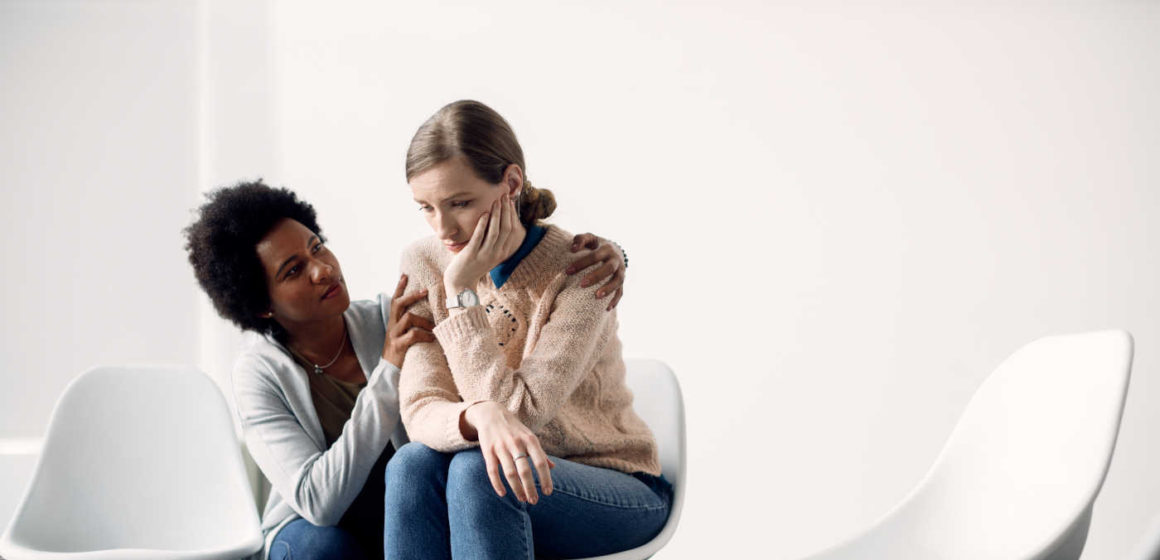The Ultimate Guide to Understanding OCD: Learn How to Overcome It Today!”
Introduction to Obsessive Compulsive Disorder (OCD)
Obsessive Compulsive Disorder (OCD) is a complex mental health condition that affects millions of people worldwide, causing distress and disruption in their daily lives. Characterized by intrusive thoughts and compulsive behaviors, this anxiety disorder can be challenging to understand and manage.
In this blog post, we will delve into the symptoms, causes, and treatment options for OCD while debunking common misconceptions about the disorder.
Key Takeaways
- Obsessive Compulsive Disorder (OCD) is a complex mental health condition characterized by intrusive thoughts and compulsive behaviors that cause distress and anxiety.
- OCD symptoms can include recurring thoughts, persistent urges to perform specific actions or rituals, excessive worry about potential harm, and difficulty concentrating due to intrusive thoughts.
- Treatment for OCD typically includes cognitive-behavioral therapy (CBT), exposure and response prevention therapy (ERP), medication, alternative therapies such as mindfulness meditation and yoga, and seeking professional help from qualified mental health providers.
- Coping strategies for living with OCD include practicing mindfulness, creating a routine, seeking support from friends/family/support groups, educating oneself about the disorder to reduce stigma, avoiding self-medicating with drugs/alcohol.
Defining And Explaining OCD
OCD is a mental health condition characterized by the presence of obsessive thoughts or urges and compulsive behaviors or rituals that are performed as a means of alleviating anxiety, distress, or fear.
Symptoms Of OCD
Obsessive Compulsive Disorder (OCD) manifests in various symptoms, which can range from mild to severe, impacting an individual’s daily life and relationships. Some of the most common symptoms include:
1. Recurring and intrusive thoughts or images that cause distress (obsessions)
2. Persistent urges to perform specific actions or rituals (compulsions)
3. Excessive worry about potential harm or danger
4. A strong need for orderliness, organization, or symmetry
5. Fear of contamination and excessive hand-washing or cleaning behaviors
6. Repeatedly checking on things, such as locks, appliances, or switches
7. Counting, tapping, repeating words or phrases, or engaging in other repetitive behaviors
8. Avoidance of situations that may trigger obsessions or compulsions
9. Difficulty concentrating due to intrusive thoughts
10. Distress caused by the inability to control unwanted thoughts and behaviors.
It is important to note that the severity of these symptoms may vary over time and between individuals suffering from OCD; however, seeking professional help is essential for proper diagnosis and treatment options tailored to each person’s unique situation.
Types Of OCD
Obsessive-Compulsive Disorder can manifest in several ways, and there are various types of OCD. Some common types include:
1. Contamination OCD – characterized by excessive fear of germs and contamination. Individuals with this type of OCD may engage in compulsive cleaning or avoidance behaviors.
2. Checking OCD – involves persistent doubts about whether something was done (turned off a stove, locked the door), leading to repetitive checking behaviors.
3. Hoarding OCD – individuals with hoarding OCD have difficulty discarding items, regardless of their value or amount. This can result in cluttered living spaces and social isolation.
4. Symmetry and Orderliness OCD – characterized by the need for things to be arranged symmetrically and perfectly organized. Failure to do so can lead to distress and anxiety.
5. Harm OCD – involves intrusive thoughts or images of causing harm to oneself or others, resulting in compulsive behaviors to prevent that harm from occurring.
It’s important to note that these types are not mutually exclusive, and individuals may experience symptoms from multiple categories simultaneously. Seeking professional help is essential for proper diagnosis and treatment of OCD.
Common Misconceptions
There are many common misconceptions surrounding Obsessive-Compulsive Disorder (OCD) that can lead to stigma and misunderstandings about the condition. One of the most prevalent misconceptions is that OCD only involves cleanliness and organization.
Another misconception is that people with OCD can simply “just stop” their behaviors or thoughts if they just try hard enough. However, this couldn’t be further from the truth as OCD is a neurological disorder that requires professional treatment to manage.
Additionally, some people believe that everyone has “a little bit of OCD,” when in reality true OCD significantly impacts daily functioning and relationships.
Causes Of OCD
OCD has no single known cause, but studies suggest that it is a result of a combination of genetic and environmental factors, as well as abnormal brain functioning.
Genetic And Biological Factors
Experts believe that OCD may be caused by genetic and biological factors. Studies suggest that genes play a role in the development of OCD, as people with first-degree relatives who have the disorder are at a higher risk of developing it themselves.
Additionally, abnormalities in brain chemicals like serotonin, dopamine, and glutamate have been linked to OCD. These imbalances can affect mood regulation and cause compulsive behaviors or intrusive thoughts.
Brain imaging studies have also shown structural and functional differences in the brains of individuals with OCD compared to those without it.
Environmental Factors
Aside from genetics and abnormal brain functioning, environmental factors can also contribute to the development of OCD. Trauma is one example, as a person who has experienced trauma may develop obsessive thoughts or behaviors as a way to cope with the event.
Additionally, stressful events or major life changes such as losing a loved one or moving to a new place can trigger or worsen OCD symptoms.
It’s important to note that not everyone with these environmental factors will develop OCD, but they can increase a person’s likelihood of developing the disorder.
Abnormal Brain Functioning
Experts believe that abnormalities in brain functioning may contribute to the development of OCD. Research has shown that certain areas of the brain, such as the basal ganglia and frontostriatal circuit, are involved in regulating obsessive thoughts and compulsive behaviors.
In addition, studies have found that changes in brain chemistry can also play a role in OCD symptoms. Neurotransmitters like serotonin and dopamine, which regulate mood and behavior, have been found to be dysregulated in individuals with OCD.
Overall, while there is no single cause for OCD, it is clear that biological factors such as abnormal brain functioning play an important role.
Treatment Options For OCD
Treatment for OCD typically includes cognitive-behavioral therapy, exposure and response prevention therapy, medication, alternative therapies, and the importance of seeking professional help.
Cognitive-Behavioral Therapy
Cognitive-behavioral therapy (CBT) is a type of talk therapy that is often used to treat OCD. A therapist works with the patient to identify and change negative thought patterns and behaviors.
In CBT, patients learn tools and strategies to challenge their obsessive thoughts and resist compulsive behaviors.
CBT for OCD typically involves exposure and response prevention (ERP), which gradually exposes the person to their fears or unwanted thoughts while preventing them from engaging in compulsion behavior.
Over time, this method can help individuals become more comfortable with anxiety-provoking situations without resorting to compulsive behaviors or rituals.
Exposure And Response Prevention Therapy
Exposure and Response Prevention (ERP) is a form of Cognitive Behavioral Therapy (CBT) that is widely used to treat OCD. The therapy involves gradually exposing the person to their feared thoughts or situations while preventing them from engaging in compulsive behaviors.
For example, someone with OCD who has an irrational fear of contamination may be progressively exposed to dirty objects and taught ways to resist the urge to wash their hands repeatedly.
Research shows that ERP is highly effective in treating OCD symptoms.
Medication
Medications are commonly used in the treatment of OCD to help manage symptoms. Commonly prescribed medications for OCD include selective serotonin reuptake inhibitors (SSRIs) and antidepressants, which can help regulate brain chemistry and reduce anxiety. Other medications, such as antipsychotics and mood stabilizers, may also be used in combination with SSRIs or on their own for severe cases of OCD. It’s important to note that medication should always be taken under the guidance of a healthcare professional and should be closely monitored for any potential side effects or interactions with other medications.
Alternative Therapies
Alternative therapies can be used in addition to traditional treatments for OCD, although they are not scientifically proven as effective as medication or therapy. Here are some alternative therapies that may help manage OCD symptoms:
1. Mindfulness meditation: Practicing mindfulness meditation has been found to reduce anxiety and depression, which are commonly associated with OCD.
2. Acupuncture: This ancient Chinese practice involves inserting thin needles into specific points on the body to promote healing and balance. Some people with OCD have reported a reduction in symptoms after receiving acupuncture.
3. Nutritional supplements: Certain nutritional supplements, such as omega-3 fatty acids and inositol, have been studied for their potential benefit in managing OCD symptoms.
4. Yoga: Yoga combines physical postures, breathing techniques, and meditation to promote relaxation and reduce stress levels, which may be helpful for those with OCD.
5. Herbal remedies: Some herbs, such as passionflower and valerian root, have been used traditionally to manage anxiety and nervousness. However, it is important to consult a healthcare professional before taking any herbal supplement as they can interact with other medications or cause side effects.
While alternative therapies may help manage OCD symptoms for some people, it is important to remember that they should always be used alongside evidence-based treatments such as therapy and medication. It is also essential for individuals with OCD to seek professional help from qualified mental health providers who can create a personalized treatment plan based on their unique needs and circumstances.
Importance Of Seeking Professional Help
It is crucial for individuals struggling with OCD to seek professional help from mental health experts. While there are self-help resources available, such as online support groups and books, they can only go so far in managing the disorder.
Professional help provides a range of options for managing OCD, including therapy and medication. Cognitive-behavioral therapy (CBT) has been shown to be an effective treatment option for OCD by helping individuals learn how to manage obsessive thoughts and compulsive behaviors.
Furthermore, seeking professional help helps remove any stigma or shame associated with the disorder. Professionals understand the complexities of the condition and provide a non-judgmental space for people living with OCD to discuss their struggles freely.
Living With OCD
Developing healthy coping strategies and having a strong support system can significantly improve the quality of life for those living with OCD.
Coping Strategies
Living with OCD can be challenging, but it is possible to manage symptoms and improve overall quality of life. Here are some coping strategies that may be helpful:
1. Practice mindfulness: Mindfulness techniques such as meditation and deep breathing can help reduce stress and anxiety.
2. Create a routine: Establishing a daily routine can help provide structure and stability.
3. Seek support: Joining a support group or talking to friends and family can help alleviate feelings of isolation.
4. Educate yourself: Learning more about OCD can help reduce stigma and increase understanding.
5. Avoid self-medicating: Substance abuse can worsen symptoms of OCD, so it’s important to avoid using drugs or alcohol as a coping mechanism.
6. Write down your thoughts: Writing down intrusive thoughts can help reduce their power over you.
7. Focus on self-care: Taking care of your physical health by getting enough sleep, exercise, and eating healthy foods can also improve mental health.
Remember, there is no one-size-fits-all approach to managing OCD. It’s essential to work with healthcare professionals and develop an individualized treatment plan tailored to your needs. With time and patience, it is possible to successfully manage OCD symptoms and live a fulfilling life.
Support Systems
Having a support system is crucial for individuals living with OCD. It helps to have friends and family who understand the condition and can provide emotional support. Support groups specifically for OCD are also available, allowing individuals to connect with others who share similar experiences.
In addition to emotional support, practical help can be beneficial. This may include assistance with household chores or transportation to appointments when symptoms are particularly severe.
Education is also an important aspect of having a support system because it helps loved ones understand how they can best help the individual with OCD manage their symptoms.
Stigma And Misconceptions
One of the biggest challenges facing those with OCD is the stigma and misconceptions surrounding the disorder. Many people mistakenly believe that OCD is simply a quirky personality trait or that it’s something that can be easily controlled.
In reality, OCD is a serious mental health condition that can significantly impact a person’s quality of life. Those with OCD often feel ashamed or embarrassed about their symptoms, which can lead to feelings of isolation and loneliness.
Breaking down these barriers requires education and empathy. It’s important for friends, family members, and healthcare providers to take the time to listen to those struggling with OCD and work together to find effective treatment options.
Overall, it’s crucial to recognize that living with OCD isn’t easy but professional help combined with support systems overcomes this challenge effectively while breaking through negative stigma around it.
Conclusion
In conclusion, Understanding Obsessive Compulsive Disorder (OCD) and its symptoms, causes, and treatment options is crucial in order to effectively manage this anxiety disorder.
OCD can significantly disrupt daily activities and relationships but seeking professional help through therapy or medication is important for symptom management. While the exact cause of OCD is still unknown, a combination of genetic, neurological, and environmental factors contribute to its development.
By utilizing various treatment methods such as cognitive-behavioral therapy and lifestyle changes like stress management and exercise, individuals with OCD can live fulfilling lives with manageable symptoms.









